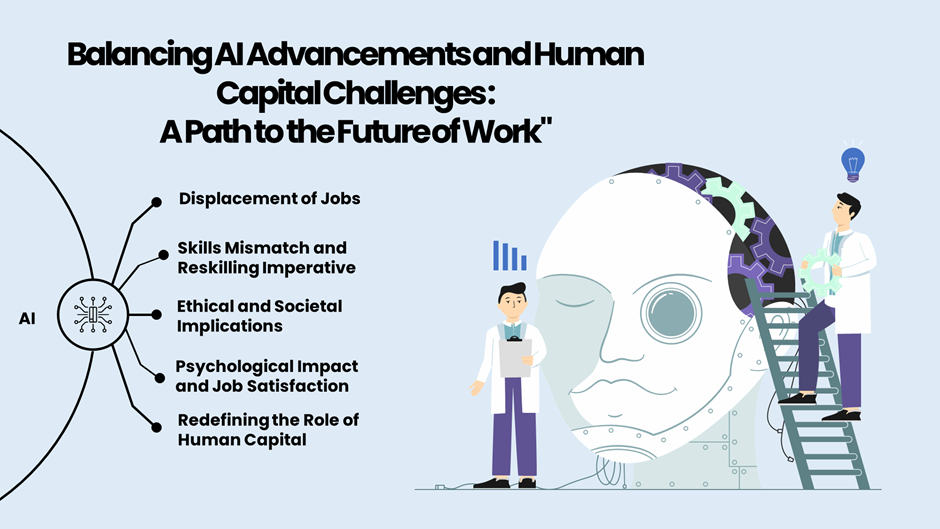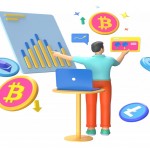As organizations leverage AI to automate tasks, streamline processes, and analyze vast datasets, they are confronted with profound implications for their workforce. While AI presents numerous opportunities for innovation and effectiveness, its pervasive adoption also poses substantial challenges for human capital. As AI evolves, organizations and individuals must confront and navigate these challenges to facilitate a seamless transition into the future of work.
One of the primary concerns surrounding AI is the potential displacement of jobs traditionally performed by humans. Automation powered by AI has the capacity to streamline processes and increase productivity, but it also renders certain roles obsolete. As AI systems become increasingly sophisticated, jobs in manufacturing, customer service, transportation, and even knowledge-based professions may face displacement, leading to unemployment and economic disruption.
The rapid evolution of AI necessitates a corresponding evolution in the skills required for the workforce. Many existing jobs will undergo transformation, requiring workers to adapt and acquire new competencies. However, there exists a significant skills gap, with many workers lacking the technical expertise needed to thrive in an AI-driven economy. Addressing this mismatch through comprehensive reskilling and upskilling initiatives is imperative to ensure the employability of the workforce in the face of technological disruption.
The proliferation of AI raises complex ethical and societal considerations that demand careful examination. Issues such as algorithmic bias, data privacy, and the potential for autonomous decision-making systems to perpetuate discrimination pose significant challenges. Additionally, the concentration of power and wealth in the hands of AI developers and technology companies raises concerns about socioeconomic inequality and access to opportunity.
The integration of AI technologies in the workplace may also have psychological ramifications for workers. The prospect of automation and job displacement can induce feelings of anxiety, insecurity, and job dissatisfaction among employees. Moreover, the shift towards task-oriented roles over traditional career trajectories may diminish job satisfaction and sense of fulfilment for some workers, leading to challenges in talent retention and employee engagement.
As AI assumes a greater role in performing routine tasks and decision-making processes, the nature of work and the role of human capital are undergoing a fundamental redefinition. Rather than displacing humans entirely, AI is augmenting human capabilities, enabling workers to focus on tasks that require creativity, empathy, critical thinking, and complex problem-solving—qualities that are uniquely human. Embracing this shift requires a reimagining of education and training paradigms to cultivate the skills and attributes that differentiate humans from machines.
While the integration of AI presents formidable challenges for human capital, it also offers unprecedented opportunities for innovation, productivity, and economic growth. Addressing these challenges requires a collaborative effort involving policymakers, employers, educators, and workers to ensure a smooth transition to the AI-driven future. By investing in reskilling initiatives, fostering ethical AI development, and embracing the unique strengths of human capital, societies can harness the transformative potential of AI while safeguarding the well-being and dignity of workers in the digital age.










